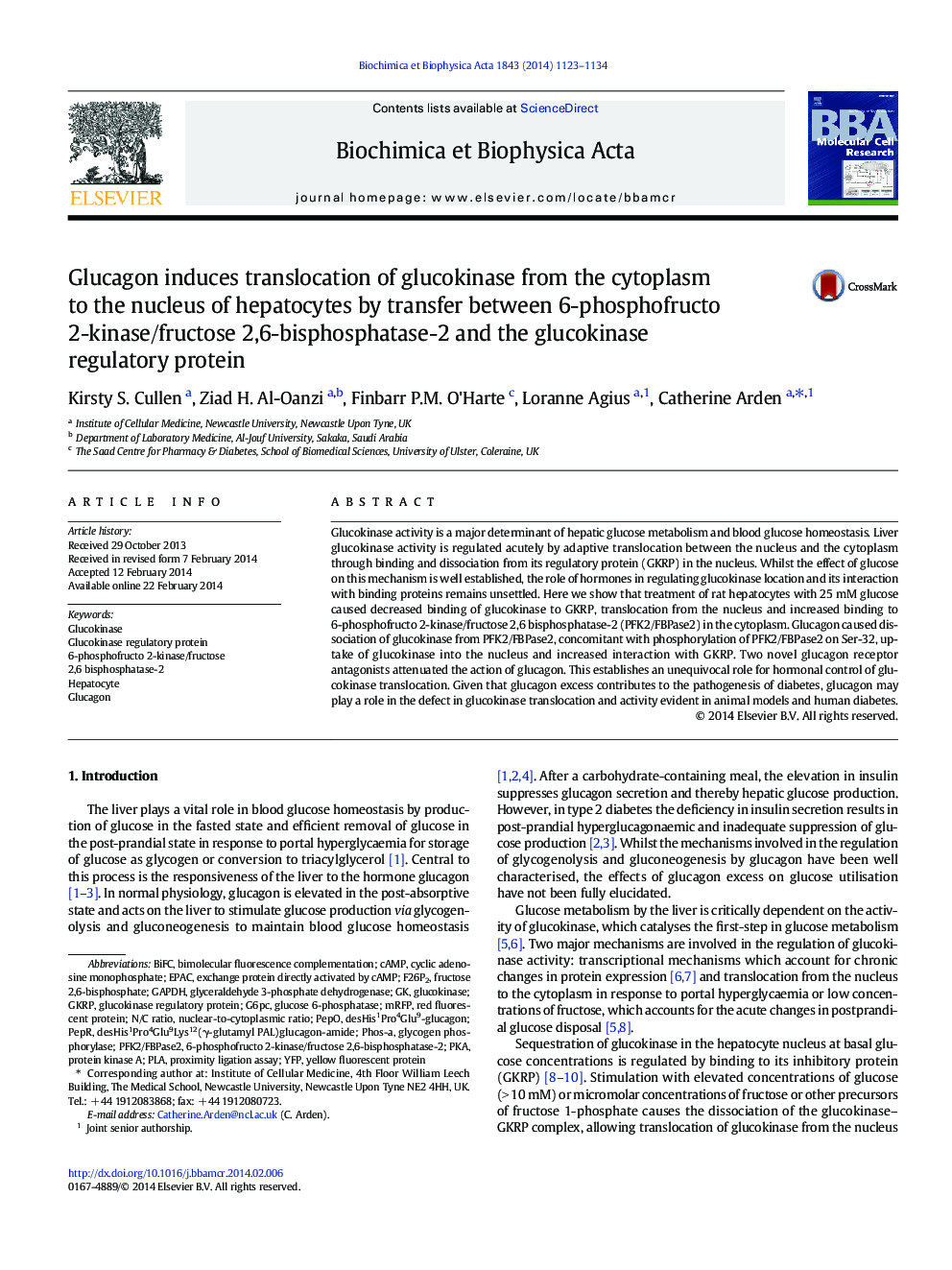| Article ID | Journal | Published Year | Pages | File Type |
|---|---|---|---|---|
| 10802162 | Biochimica et Biophysica Acta (BBA) - Molecular Cell Research | 2014 | 12 Pages |
Abstract
Glucokinase activity is a major determinant of hepatic glucose metabolism and blood glucose homeostasis. Liver glucokinase activity is regulated acutely by adaptive translocation between the nucleus and the cytoplasm through binding and dissociation from its regulatory protein (GKRP) in the nucleus. Whilst the effect of glucose on this mechanism is well established, the role of hormones in regulating glucokinase location and its interaction with binding proteins remains unsettled. Here we show that treatment of rat hepatocytes with 25Â mM glucose caused decreased binding of glucokinase to GKRP, translocation from the nucleus and increased binding to 6-phosphofructo 2-kinase/fructose 2,6 bisphosphatase-2 (PFK2/FBPase2) in the cytoplasm. Glucagon caused dissociation of glucokinase from PFK2/FBPase2, concomitant with phosphorylation of PFK2/FBPase2 on Ser-32, uptake of glucokinase into the nucleus and increased interaction with GKRP. Two novel glucagon receptor antagonists attenuated the action of glucagon. This establishes an unequivocal role for hormonal control of glucokinase translocation. Given that glucagon excess contributes to the pathogenesis of diabetes, glucagon may play a role in the defect in glucokinase translocation and activity evident in animal models and human diabetes.
Keywords
PLAn/c ratioGKRPG6PCEpacmRFPYFPpKaGAPDHBiFCcAMPCyclic adenosine monophosphateProximity ligation assaybimolecular fluorescence complementationFructose 2,6-bisphosphateHepatocyteExchange protein directly activated by cAMPGlucokinase regulatory proteinyellow fluorescent proteinred fluorescent proteinprotein kinase AGlucagonglucose 6-phosphataseGlucokinaseglyceraldehyde 3-phosphate dehydrogenaseGlycogen phosphorylase
Related Topics
Life Sciences
Biochemistry, Genetics and Molecular Biology
Biochemistry
Authors
Kirsty S. Cullen, Ziad H. Al-Oanzi, Finbarr P.M. O'Harte, Loranne Agius, Catherine Arden,
